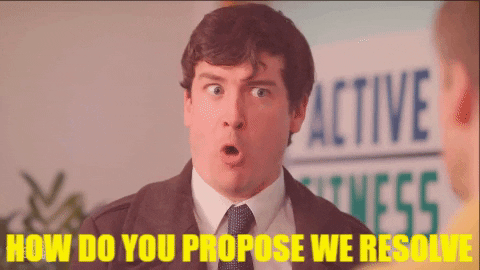SEO Copywriting vs. HeroGuide—Consider This Before Creating Your Web Copy

There’s something we need to know before we can choose when to use SEO and when to use the HeroGuide Framework: what exactly are they??
SEO (“search-engine optimization”) is a method that maximizes the chances of your target audience finding you, by increasing your website’s visibility to search engines (mainly Google). This is done by, for example, using strategic keywords and having sufficiently long content. For more, please read our blog, Three SEO Tips to Improve Your Existing Website and Grow Your Business.
HeroGuide Framework helps you tell the story of who you are and what your business is about
On the other hand, the HeroGuide Framework helps you tell the story of who you are and what your business is about, inviting your audience to be part of it. Or, as legend has it:
Once upon a time, in a faraway land,
there was a customer.
The customer had a problem
that no one in the land could solve.
A business appeared and with it—
a magic solution!
The business gave the solution to the customer,
and they all lived happily ever after.
Read more about HeroGuide in our blog, Creating the Ultimate Homepage Using HeroGuide.
Both methods are powerful options to be reckoned with, but we must apply them appropriately for maximum efficacy.
Both methods are powerful options to be reckoned with, but we must apply them appropriately for maximum efficacy.
For example, if a thief invaded your house, would you call the fire department? No. Because they fight fires, not thieves. And if your home were on fire, you wouldn’t call 911, expecting the police vehicle to have a fire hose? No, different methods perform different functions.
Here’s how to use the right method at the right time.
When This, When That?
You want to use the SEO method when your focus is getting Google to index your content and rate it high on the search engine results.
Use SEO-friendly keywords and write longer content, because the longer people scroll down on your page, the higher your chances of alerting the Google bots: “Ding! Ding! Ding! This page is gaining traction. This must be a hot commodity—we’ll rank it higher.”
For SEO, you’ll want to value quantity over quality (remember, that’s not an excuse to write lazily and bore your audience!). Your goal is to keep your audience scrolling down your page.
HeroGuide is not about quantity; it’s about quality.
HeroGuide is not about quantity; it’s about quality. It’s for the poets and hopeless romantics among us. OK, I’m exaggerating, but only a little.
When you are trying to win your audience over, short, sweet, and minimalistic is the winning combination. Be mysterious, be profound, and write just enough to pique your reader’s interest. Less is more.
Still, there is tension between the two methods. Is it either/or? Don’t we need both to succeed? Too much of this and too little of that might result in not much of anything at all.
How do I find the balance? How do I know which one to invest my focus and effort into?
Too much of this and too little of that might result in not much of anything at all.
Choose What’s Best for You
It depends on your goal.
What is the marketing strategy for your website as a business? Which method will best help you reach your target?
If your marketing strategy is focused on capturing leads for search engines, certain parts of your website need to be optimized for search engines. Invest time in reaching your 1,200-word quota, do your keyword research, scout out what titles your competitors are using, and make sure you STAND OUT.
But, If SEO isn’t part of your grand marketing strategy, focus on HeroGuide.
But, If SEO isn’t part of your grand marketing strategy, focus on HeroGuide.
Let HeroGuide take center stage as the main character on your webpage. Be intentional about conveying deep things succinctly, get creative, and use all the colors of the rainbow.
Are SEO and HeroGuide like oil and water, or do the two ever co-exist?
They do. You can have your blog posts optimized for search engines and your landing pages focused on HeroGuide.
Blog posts can be used to capture people from search engines, and, once they’re on your blog, get them to click a link.
Blog posts can be used to capture people from search engines, and, once they’re on your blog, get them to click a link. That link leads them to a landing page on which they will be able to submit an inquiry or purchase an item.
For example, here’s a blog from one of our clients with an SEO focus, but once you scroll down and click on “Olive Oil” in the daily section, you are led to the olive oil collection page, which is focused on selling products.
To get the best of both worlds, use the HeroGuide Framework for the title people see when they land on your page, and use an SEO title tagged as an H1.
How else can we partner the two?
When your title is artistic, but not SEO friendly.
To get the best of both worlds, use the HeroGuide Framework for the title people see when they land on your page, and use an SEO title tagged as an H1 (an HTML heading is most commonly used to mark up a webpage title). The search engine will index that SEO title and disregard the HeroGuide title.
In that situation, SEO is the pick-up line and HeroGuide is the conversation at the candlelit dinner.
If you’re overwhelmed by your options, don’t be.
If you’re overwhelmed by your options, don’t be. Take a step back, look at your web pages (and your customers), and attend to their needs. Change your strategy accordingly, adjust your plans, and you’ll see that you know more than you thought.
Still want help understanding what your website needs most? Contact us for a free consultation.


